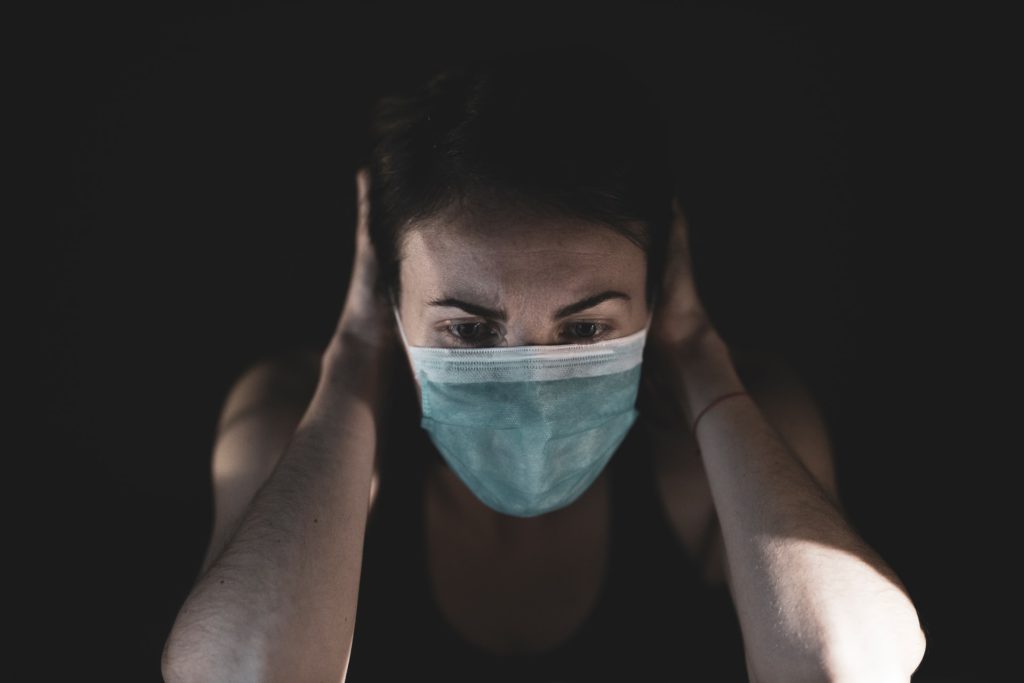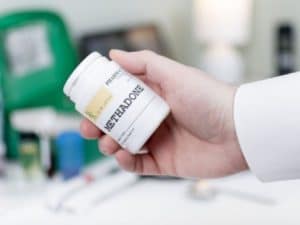
Opiate Detox Treatment: What Happens During Opiate Detox?
If you are caught in the grasp of opiate addiction, it can feel almost impossible to imagine breaking free. However, an opiate detox treatment can

August 31, 2020
The idea of going through opiate withdrawal can be extremely scary—especially for those who are physically dependent on these substances and may already have tried quitting. Withdrawal can be difficult, painful, and risky to do on one’s own, and can lead to an accidental overdose without professional treatment at an opiate detox center. If you are suffering from opiate dependence and need help going through withdrawal, getting help at a treatment center is the best thing you can do for your health and livelihood.
Here’s what you need to know about opiate withdrawal, and what you can do to experience a safe recovery from drug dependence.
Opiate withdrawal is the term used to describe a set of symptoms you may experience when abruptly discontinuing opiates or suddenly switching to a smaller dose. Opiate withdrawal is the body’s way of recovering from the effects of physical dependence and returning to a normal, healthy state. When you use opiates regularly for a period of time, your body becomes accustomed to functioning under the influence of these substances, but when you abruptly stop use, your body reacts to their absence in the form of withdrawal syndrome.
Common opiate withdrawal symptoms may include:
Withdrawal symptoms can begin anywhere from 8 to 48 hours after the last dose and can last between 4 to 20 days depending on the severity of dependence and the type of opiates being used. Dependence on short-acting opiates like heroin generally results in a shorter withdrawal period, while dependence on long-acting opiates like oxycodone has a longer period of withdrawal.
Many people associate opiate withdrawal with an increased risk of death and dying from symptoms. However, withdrawal symptoms are not life-threatening in themselves. Opiate withdrawal can be extremely painful and uncomfortable and has been compared to having a bad case of the flu. Though some people who withdraw from these substances may feel as if they’re going to die, the risk for death is often very low unless people try withdrawing on their own without support or professional medical treatment.
The most common causes of death associated with withdrawal are relapse and overdose, and complications that can arise from untreated withdrawal symptoms. For instance, symptoms such as sweating, vomiting, and diarrhea can lead to dehydration without proper care and management. In regards to relapse and overdose, some patients resume opiate use to relieve severe symptoms such as drug cravings, insomnia, and muscle aches. After a person discontinues opiates, the risk for overdose is higher since their bodies are no longer tolerant of their usual doses.
The most effective way to avoid complications from opiate withdrawal is to receive medical detox at an opiate rehab center. Opiate medical detox allows you to withdraw from these substances in a controlled medical environment where you can be closely monitored and supervised by trained nurses and doctors for the duration of your withdrawal. Opiate detox also involves the use of medications that relieve and/or eliminate your withdrawal symptoms so you can feel more comfortable as you recover from drug dependence.
Many people who suffer from opiate use disorder are hesitant to seek professional treatment for reasons such as fear, stigma, and treatment costs. Fortunately, the medical staff at opiate rehab centers understand and acknowledge how difficult and dangerous it can be to stop using these drugs without help and may even have personal experience with addiction. In regards to treatment costs, many detox centers accept most health insurance plans and offer a wide range of financing and payment options to make opiate detox affordable for nearly anyone who needs help recovering from drug dependence.
Withdrawing from opiates at home is not recommended, as this can lead to potential relapse and complications. Some websites and health stores sell at-home detox kits that claim to safely and effectively eliminate opiates from the body. Many of them are not FDA-approved. While at-home detox kits may help flush drugs from the body, they do not prevent complications like dehydration and relapse.
Should you decide to detox from opiates at home, consider hiring a nurse or medical professional who can care for and monitor you closely during withdrawal. Remove all drugs and substances from the home, including alcohol, and make plans to receive addiction treatment at an opiate rehab center following detox. Also, have a backup plan in place to visit an emergency room or medical detox center in the event complications arise.
Keep in mind that an opiate detox center can provide you with the right treatments, including medications, that can effectively relieve your symptoms. Choosing medical detox over at-home detox ensures you receive treatment from trained medical professionals experienced at helping people fight and recover from opiate dependence.
After going through opiate detox, join a rehab program that can help you successfully recover. Medical detox is just the first stage of addiction treatment. To prevent relapse and create a drug-free lifestyle, you may need education, counseling, and therapy, which aim to address the root cause of your addiction and achieve long-term sobriety.
Opiate rehab centers use a wide range of evidence-based behavioral therapies to treat addiction and customize their treatment programs for each patient. Cognitive-behavioral therapy helps patients identify and change harmful beliefs and behaviors, while family therapy helps patients repair and strengthen relationships with friends and relatives who may have been affected by their addiction. Many rehab centers also offer fun, therapeutic activities to enhance treatment, such as yoga, mindfulness meditation, outdoor therapy, music therapy, and art therapy.
Recovery from addiction is often a lifelong journey, but a quality opiate rehab program can help you achieve long-term abstinence from these drugs and make healthy lifestyle changes that support your sobriety. If you choose to withdraw at a detox center, ask about available rehab programs or referrals to nearby addiction treatment centers.
Florida is one of the most ideal settings for opiate detox and rehab treatment, particularly due to its warm, sunny climate and miles of scenic beaches and coastline. Summer House Detox Center offers opiate detox in Florida to help both local residents and out-of-state visitors experience a safe, relaxing, and fulfilling recovery from drug dependence and addiction.
Summer House Detox Center is located in Miami, Florida just minutes away from beautiful beaches and parks. Summer House offers its patients luxurious amenities including acupuncture, massage treatments, yoga, jacuzzi, large comfortable bedrooms, private baths, and gourmet meals prepared by a 4-star chef. Patients can relax and focus solely on recovery as they go through opiate detox, and attend Narcotics Anonymous (NA) meetings on-site before transitioning to a drug rehab program.
If you or someone you know is in need of addiction treatment in Fort Lauderdale, give Summer House Detox Center a call at 800-719-1090 to schedule a FREE consultation. You can also visit us at 13550 Memorial Highway Miami, FL 33161. We are open 24 hours a day, 7 days a week.
Sources:
https://medlineplus.gov/ency/article/000949.htm

If you are caught in the grasp of opiate addiction, it can feel almost impossible to imagine breaking free. However, an opiate detox treatment can

Detox from opiates can produce withdrawal symptoms ranging from flu-like symptoms and insomnia to irregular heartbeat and anxiety. With symptoms like that, it’s understandable why

Methadone detox is one of the treatments usually provided in rehab centers for opioid addiction. And sometimes, opioid addicts, who are on their way to
For immediate assistance, please call our Admissions Specialists at 800-719-1090.
Speak With A Qualified Addiction Specialist 24/7